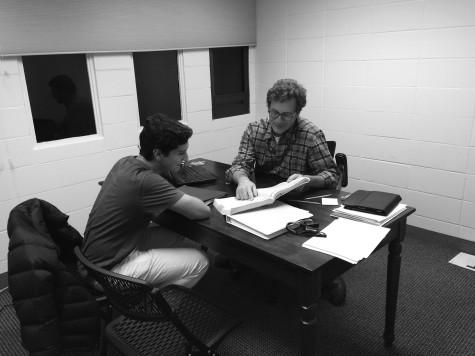Teachers vs tutors
Recently, Blake has seen a huge spike in the use of tutors for assisting students with their studies, whether it’s helping students prepare for standardized testing or helping them understand class work.
This is a result of the ‘big grade’ emphasis that parents and students feel. Students see a “B” on their report card and automatically think they need a tutor. However, issues have risen as a result of the blurry line between tutors aiding and dominating students’ school work, and whether teachers should know whether their students have tutors.
Christina Colvin and Beth Calderone explain how students do not always tell them when they are getting tutored for their class. Calderone says, “I would vastly prefer if they didn’t [get a tutor because] it’s really hard…to know what goes into the writing process. [There are] different messages, different expectations.”
This is especially true in classes that involve a lot of writing, such as English or Social Studies classes. Colvin comments on how it would be better for students to come to her for help first before getting a tutor, this way she can “adjust the class accordingly.”
However, Emma Burke ‘18 explains that a tutor is useful because, “you can meet with someone one on one in tutorials when lots of other students [are also there] to meet with teachers.”
Another concern with tutors is whether they are entirely beneficial to students. Oftentimes, tutors overstep the line between giving helpful guidance and doing the student’s work for them.
In a case Calderone dealt with last year, a student’s tutor was working on the student’s spring research paper and printed out resources for the student to use. Although this may not seem inherently bad, it could actually be taken as a form of cheating because the assignment was intended to be completed individually.
In addition, because the tutor was doing the majority of the work for them, it was hard to gauge whether the student knew how to accurately find appropriate sources. This is just one example of tutors crossing the guidance line.
 To be safe, before you go and get a tutor, remember to first meet with your teacher and see if they can give you the assistance you need. If there is not enough time to meet with your teacher in school, ask them if they think it would be helpful to get a tutor. If you decide a tutor is your best option, give your tutor your teacher’s email so they can communicate.
To be safe, before you go and get a tutor, remember to first meet with your teacher and see if they can give you the assistance you need. If there is not enough time to meet with your teacher in school, ask them if they think it would be helpful to get a tutor. If you decide a tutor is your best option, give your tutor your teacher’s email so they can communicate.








